Disclosure: Meeple Mountain received a free copy of this product in exchange for an honest, unbiased review. This review is not intended to be an endorsement.
I knew it when I first saw the press release: Free Radicals, an asymmetric Eurogame from designer Nathan Woll and published by WizKids, was going to be intriguing.
That’s because gameplay is unique: every player is playing their own, separate game. In other games, that might mean everyone is competitively trying to beat a shared puzzle.
Using a mix of 10 factions, everyone is playing their own puzzle on their own player board with its own mechanic—polyomino puzzles, programming turns in advance, hand management, pick-up and deliver, fog of war mixed with an action point system. The list goes on and on!
It’s fair to say that Free Radicals borrows liberally from other games. It’s also fair to say that you are mostly staring at your own puzzle. Does the game work?
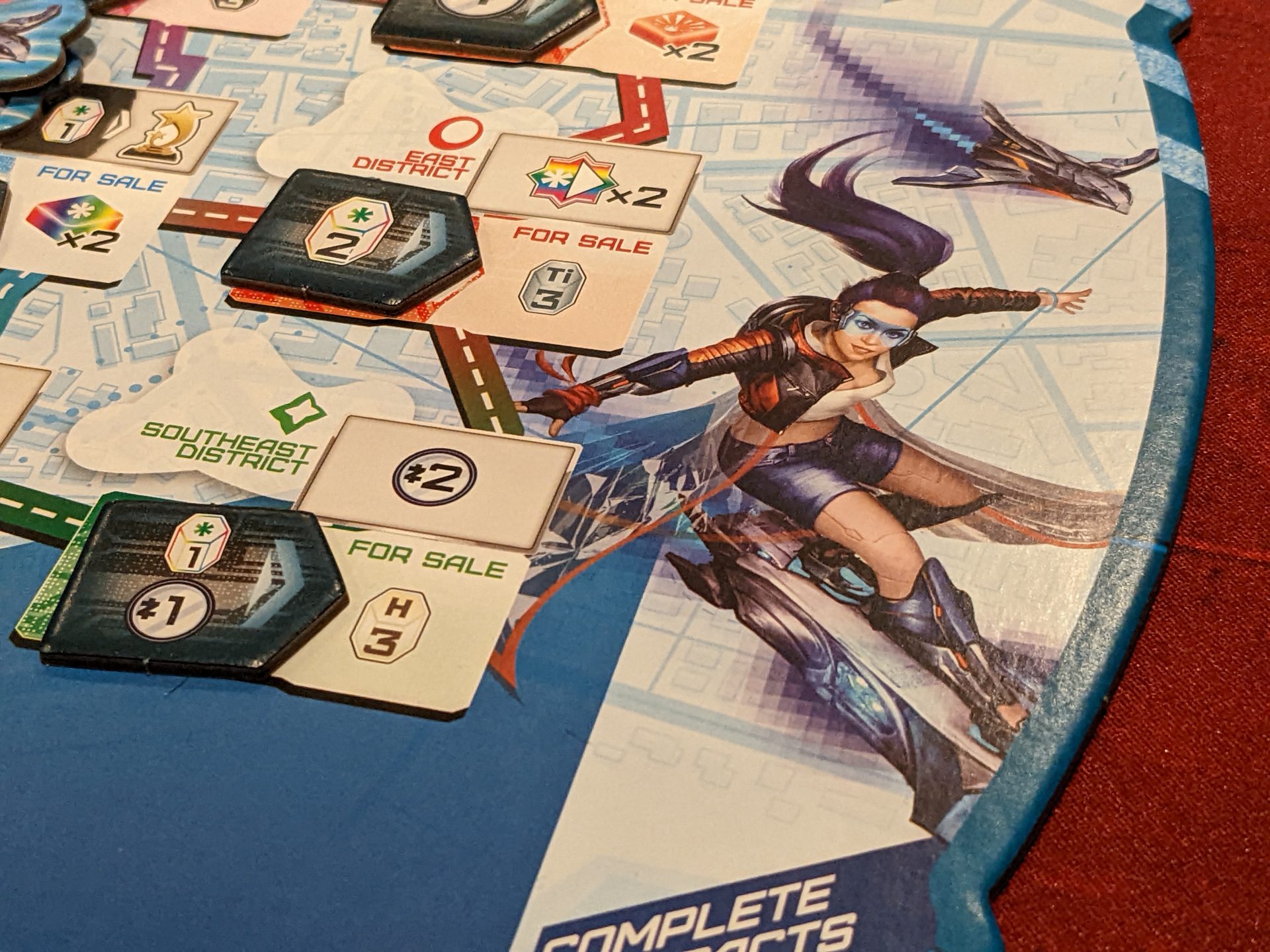
We Can Share (A Little)
Some of the gameplay elements in Free Radicals are shared. Victory points are tracked in one place on the main board. On that same board, there is a Knowledge track in full view of all players. A token that tracks all 12 rounds is also front and center.
There are Buildings pre-printed on the board, too. Buildings are worker placement spots, although without wooden meeples or easy ways to track when players visit a location. The important thing is that a shared deck of Data Cards, with a market always showing 4 cards at a time, will be used to “Awaken” these 10 Buildings.
Up to two players can Awaken a Building. This action will earn 4-7 points plus a chance to earn rewards any time another player visits the Building later. Each Building also has a specific bonus for one faction if they visit, making those locations a little juicier for specific situations.
Buildings are your garden variety item conversion locations: turn cash into resources like carbon or titanium; turn resources into points; turn cash into Data Cards. But controlling those locations provides a drip of items to anyone who first Awakened the Building, and over the 12 rounds of the game, that can add up.
I can’t easily tell you how to play Free Radicals, because all 10 factions literally have their own rules.
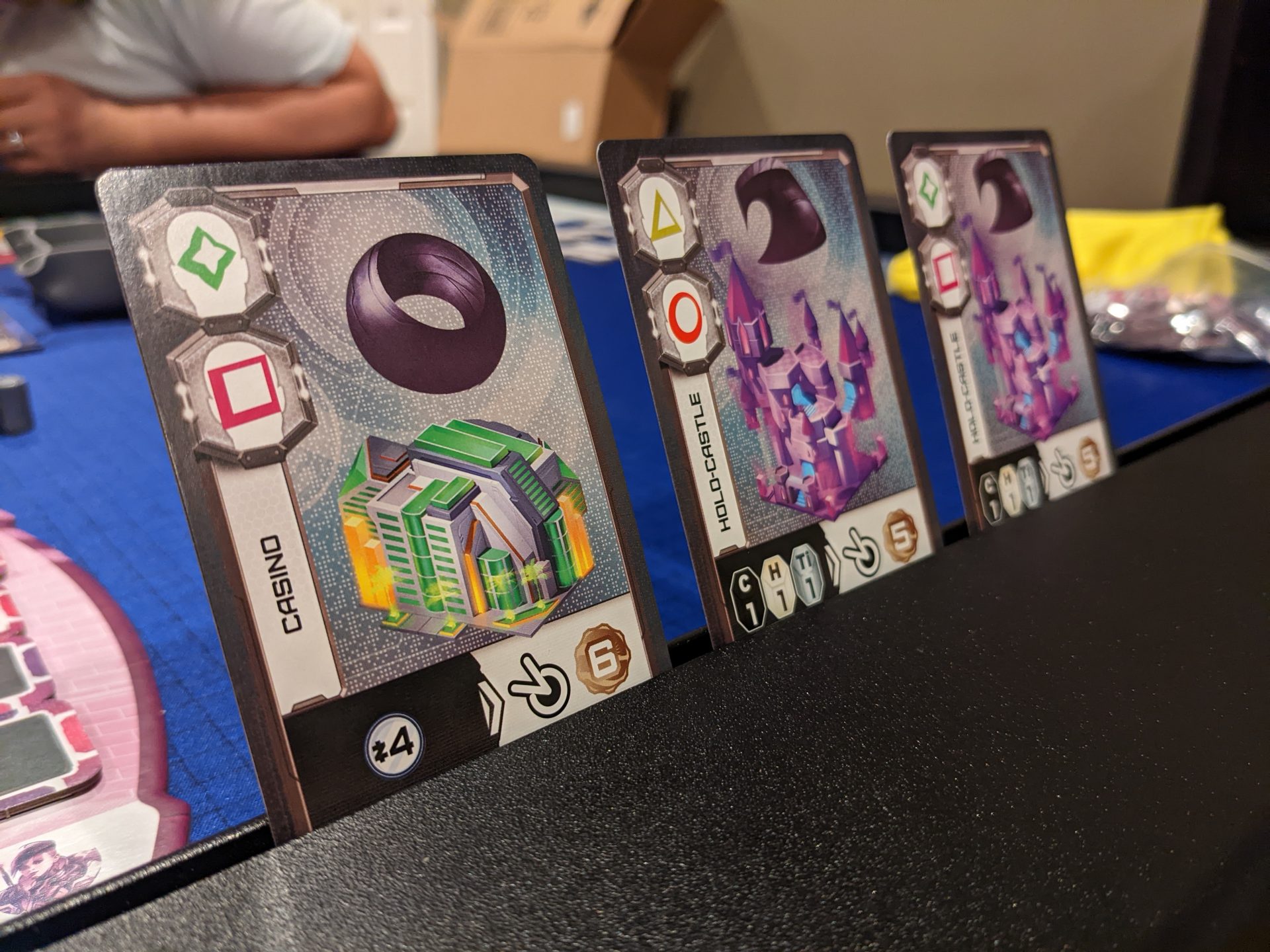
Here’s the Teach: You’re On Your Own, Partner!
During the teach for my first game of Free Radicals, I covered an overview of the basics and end-game scoring. Then I delivered the punchline:
“Those are the basics. Go ahead and pick up your player aid, and read to yourself!”
And that’s really what happens in Free Radicals. All of a player’s actions, turn sequence, and strategy is on a double-sided sheet of paper, which they will use throughout the game to understand how to play. Much like a game of Sidereal Confluence, one person can teach the basics and serve as the reference point for questions tied to those basics.
After that, each player is on their own.
With a group of gamers who can pick up rules quickly, learning a game independently won’t be an issue. But you won’t have a sense of what anyone else is doing for most of the game, unless a player shares the insights listed on their player aid.
Even then, none of that is going to matter to you. Free Radicals is a unique experience: it’s a box of 10 games, with a shared scoring system. One player jokingly called Free Radicals “Board Game: The Board Game”, and they are mostly right.
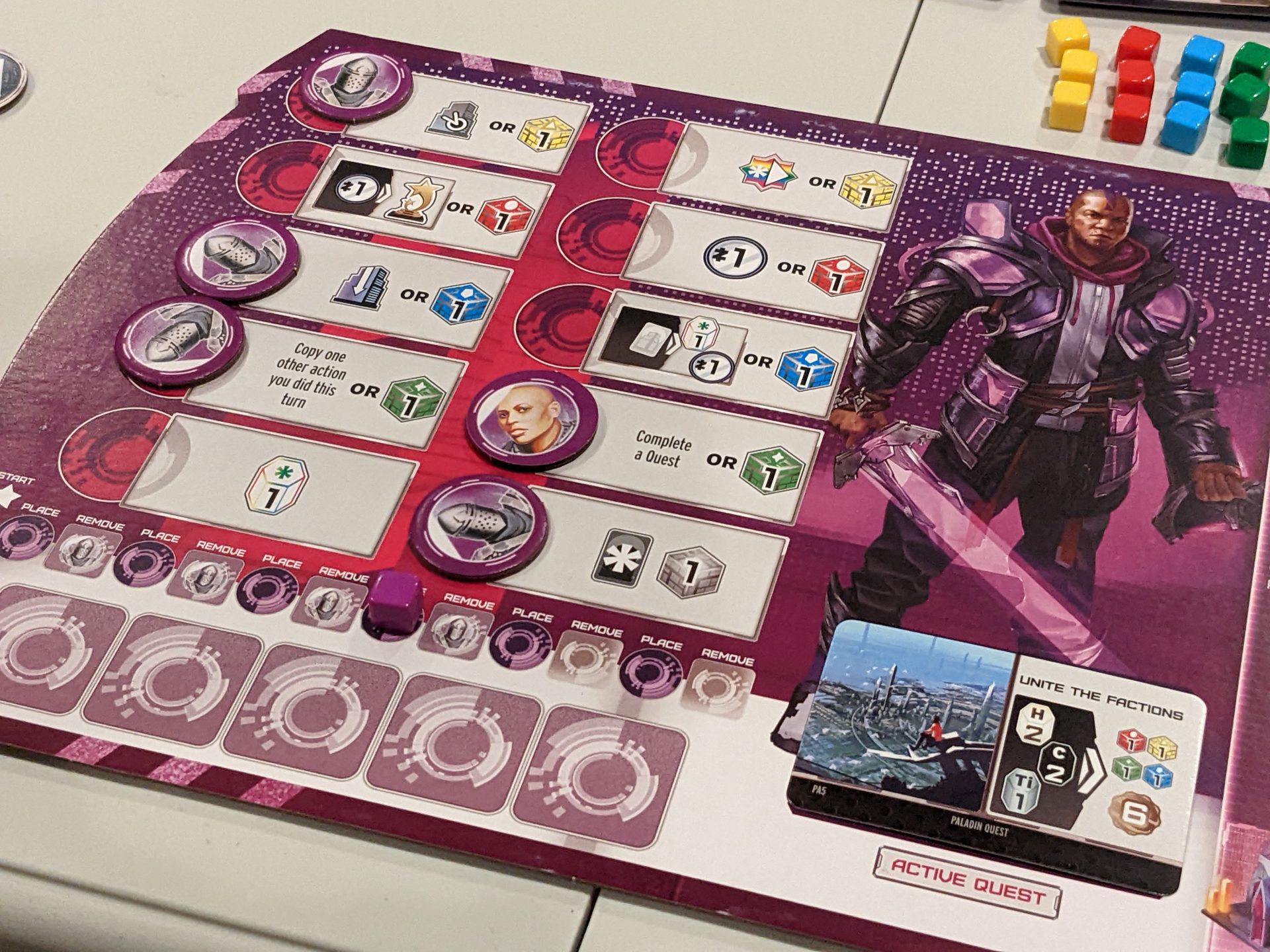
The asymmetry is both a feature and a bug. If you are looking to study your opponents’ strategy to see where they are leaning, that is not possible in Free Radicals. You certainly can’t disrupt their planning, save for maybe taking the Prestige token, a marker that will change hands often throughout a game and earn the holder 1-2 points every round.
But for the Eurogamer in us all, Free Radicals celebrates that spice of life treasured most: not having to bother talking to anyone else for certain stretches of the game. You’ll still have to report to the table what it is you are doing—no one else is going to understand it, but you’ll still want to talk each move through—but you will mostly be left to your own devices.
One area where you can influence other players is in the control of Buildings, since resources will slowly flow down to you any time another player visits your Buildings. There are a few buildings that seem objectively better than others—the Vertical Farm, Cast Tower and Bazaar are always going to attract my interest—but all Buildings will eventually come into play.
Free Radicals isn’t a “point salad”, that feeling a game gives you when doing just about anything—sometimes blindly—scores you points. But there do seem to be lots of different ways to score meaningful points beyond your faction-specific lifestyle. Advancing your own faction on the Knowledge track is important since that also provides an end-game scoring boost for the leader, but advancing other factions (even those not in a game, if you are playing with less than 5 players) also grants victory points and possibly better bonuses.
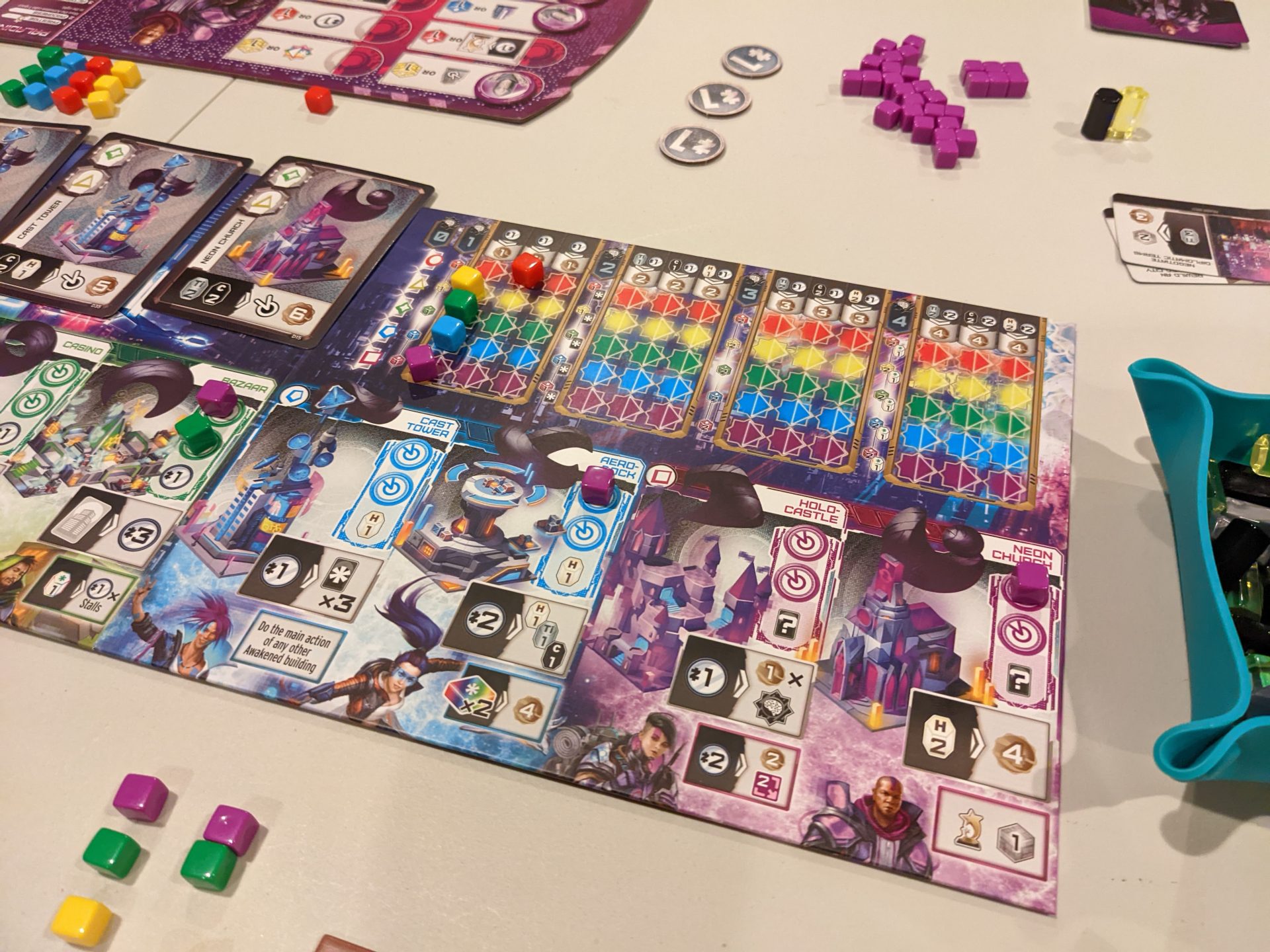
I’m All Alone, But I’m Having Fun
Despite the nature of independent play in Free Radicals, I’m enjoying myself each time I play.
If variety is the spice of life, it’s easy to appreciate how different Free Radicals plays with each faction. The rulebook provides a brief guide on how each of the 10 factions play; I am hoping to play with all 10 factions once, to have tried each one.
Alternately, players could approach Free Radicals by trying to master 1-2 factions that specialize in the style of board game they enjoy most. Do you like games such as Witchstone? The Farmers are right up your alley. Deck building? The Entertainers might just be for you. I’m a big fan of pick up and deliver games so the Couriers and their drone dropping mechanic made for a fun puzzle.
All of this presents an interesting problem: how often will you really be able to play Free Radicals?
If this is a game that only gets to the table a couple of times a year, skip it. The game is not tough to teach, so you could get away with not playing it for long stretches; however, if you are going to jump into the pool with Free Radicals, you are best suited to jump into the deep end to try as much of the included content as possible to explore it for yourself.
I’ve had fun so far but that is because I’m going to hold onto this one and whip it out occasionally. I’ll have a new mini-game to try each time I play, and Free Radicals fits light and medium-weight gamers well without giving the most experienced player a distinct advantage.
Some of the factions are not a great fit for new players, such as the Adventurers, which use an action point system and what feels like a heavier ruleset on the player aid. This could also lead to a frustrating moment or two, like I had during my play with this faction: you are discovering new rewards on your player board every round, but some tiles have no rewards. Reacting in the moment or trying to pivot can prove difficult.
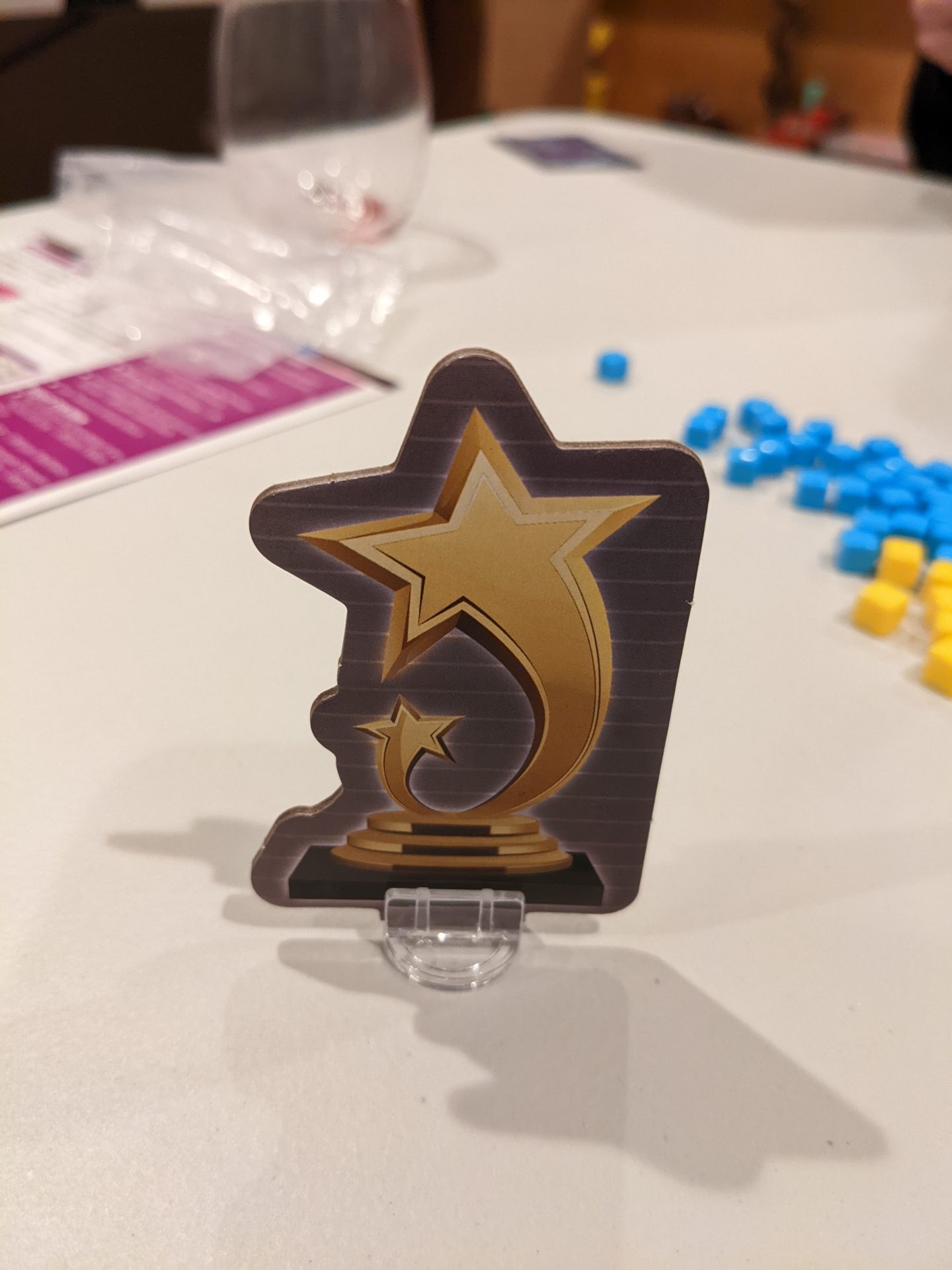
Free Radicals missed on opportunities to shine. Ranking the factions by complexity would have been nice. The special faction powers at each Building really range. Some of them feel a bit weak, while others seem gated to certain cards (like the Artisans, who need to use a specific card to trigger a 3-point action).
The lack of variety in Buildings is also surprising, and they are pre-printed on the board, limiting the chance at differences. More Buildings and more ways to jump up on the Knowledge track will help extend the life of the game if expansion content is ever added to the base game experience.
The theme is somewhat of a miss. You’re telling me that these monoliths showed up all over town, now we are all mining them competitively? Hmm. Luckily, the artwork by Tomasz Chistowski worked for most of the players who joined me at the table.
The components in Free Radicals are high quality. The resource tokens are nice, and the Favor cubes are satisfying to toss around the table to other players.
The mix of faction-specific components are also nice; the Hoteliers seem to have their own complete game, between polyomino pieces and a mini deck of cards. Adventurers have their own standees. The box insert is excellent, as are the sturdy, double-thick player boards. For a game that provides a strategy and instructions for each player on a double-sided piece of paper, Free Radicals does a great job summarizing a lot of information in a small space.
Free Radicals is a fun time. Games run 90 minutes to 2 hours, but you’ll never be bored as you try to plan each turn. Come in knowing that this is a game on the very low end of interaction and you’ll be better prepared to embrace Free Radicals as a puzzle game with a common scoring system.


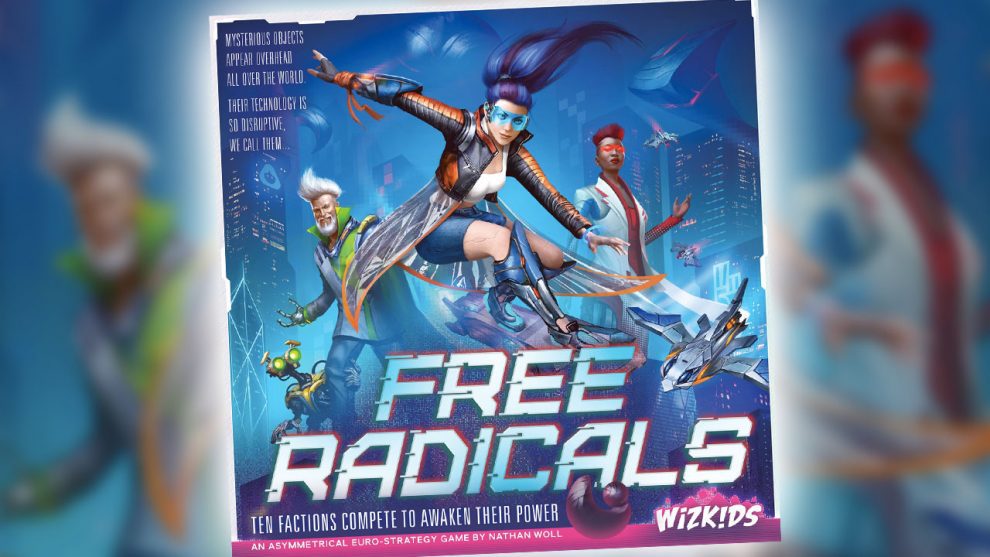



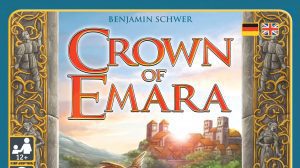





Add Comment